Vulcan to close its Arts + Entertainment division, which includes Cinerama and Seattle Art Fair
by Moira Macdonald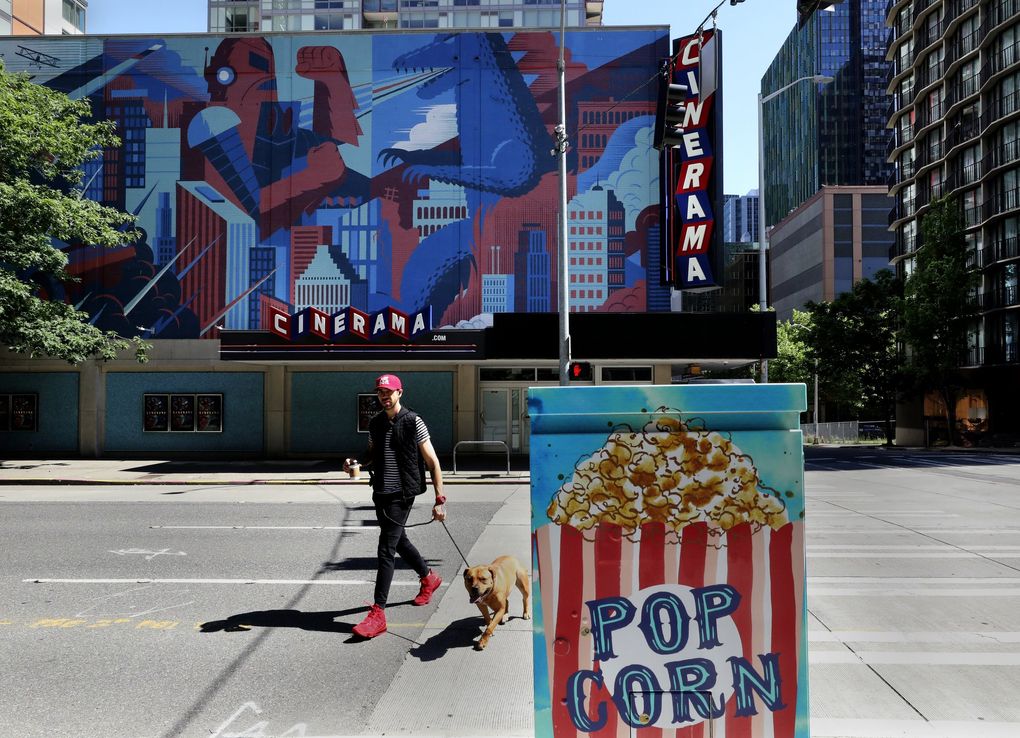
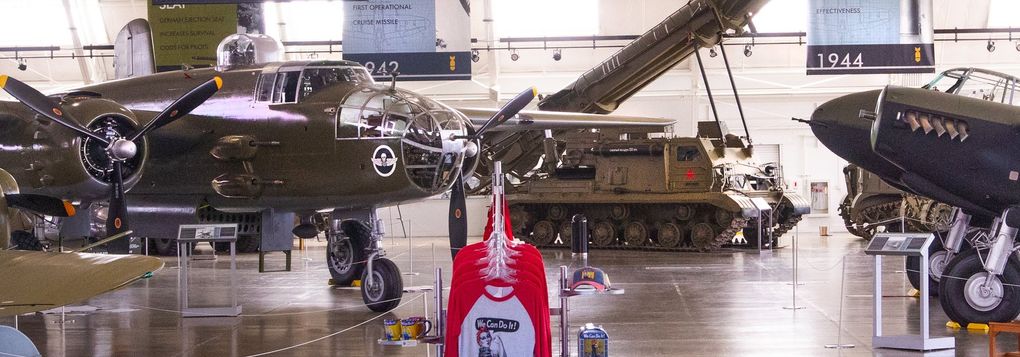
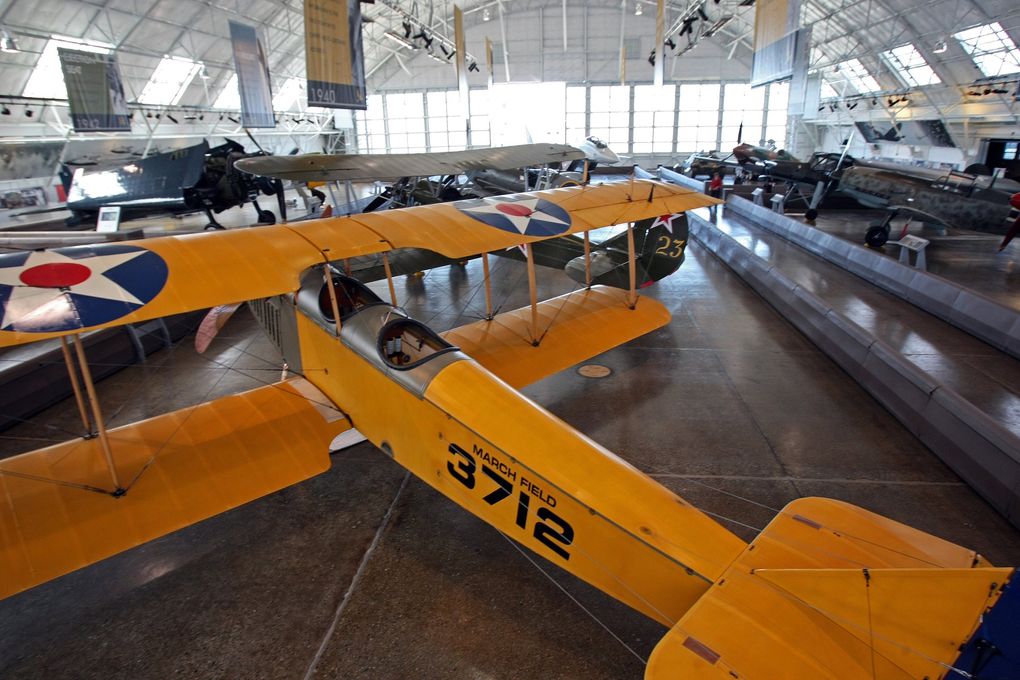
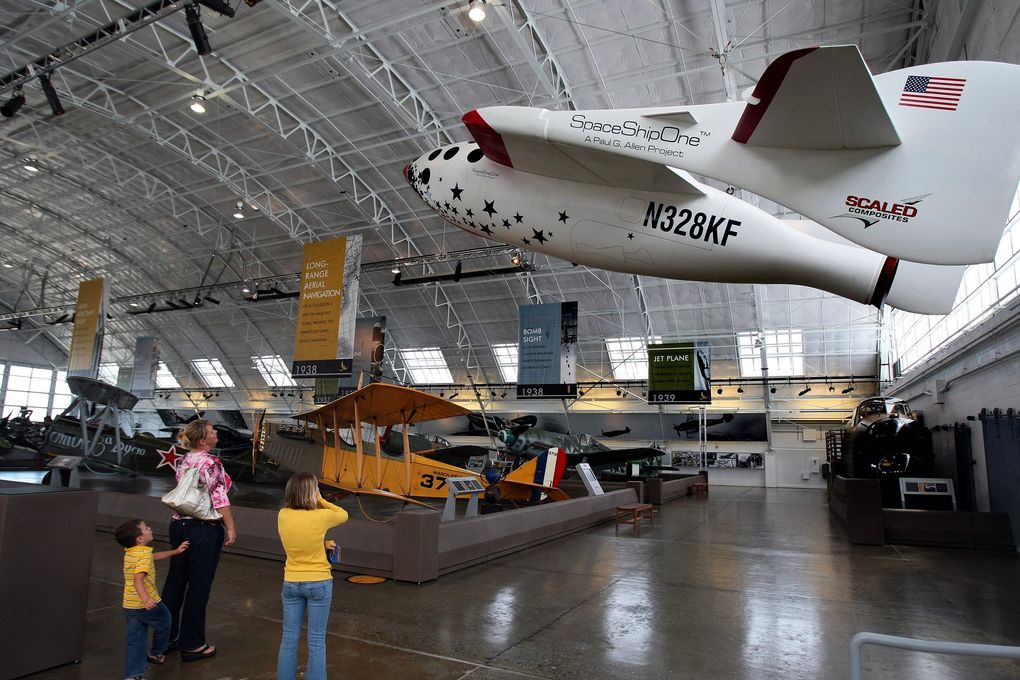
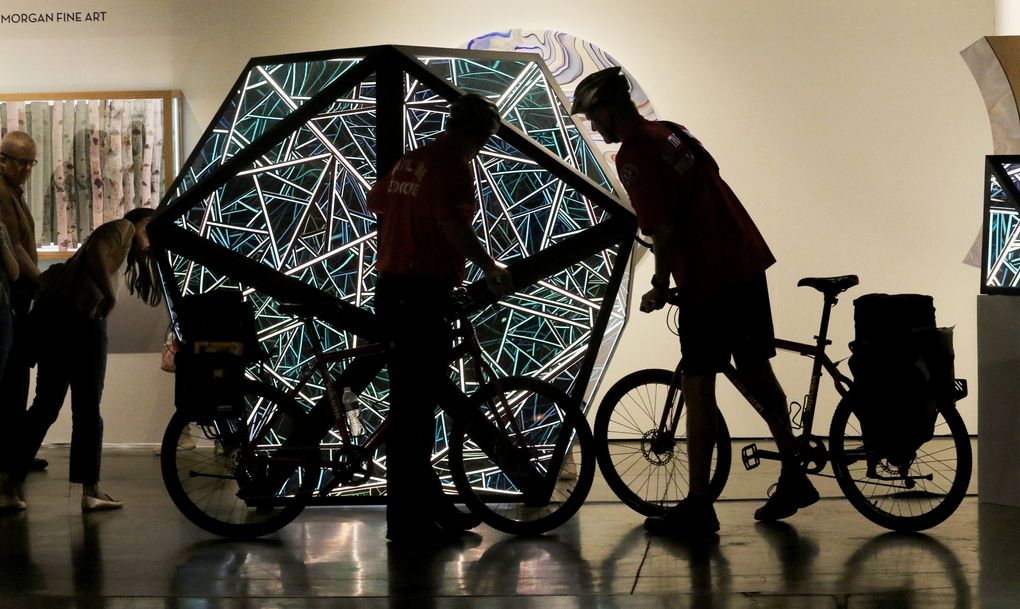
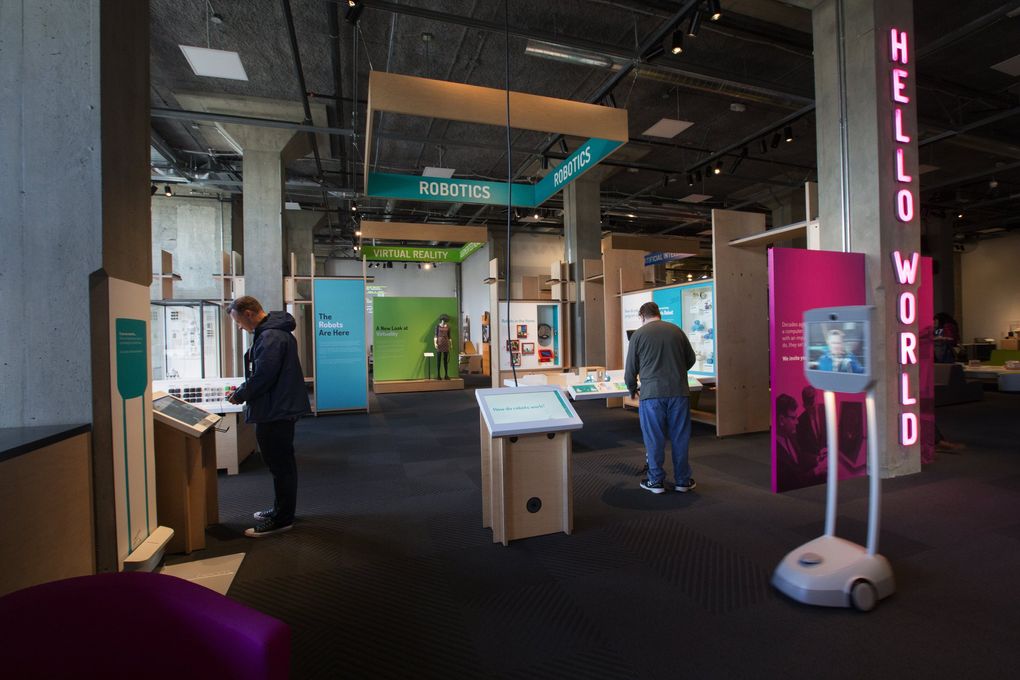
In a move that keeps one of Seattle’s most beloved movie theaters shuttered and leaves the fate of one of the city’s biggest arts events up in the air, Vulcan on Wednesday said it is closing its Arts + Entertainment division, as well as its filmmaking entity, Vulcan Productions, by the end of the year.
This means the iconic Cinerama movie theater, currently closed while undergoing renovations, will remain closed “for the foreseeable future,” according to a statement from Vulcan.
Seattle Art Fair, already canceled for 2020 due to COVID-19, “will take some time to see how the situation and art world calendar evolve before deciding any further plans,” the statement says.
Two museums under the Vulcan wing, closed because of the pandemic, will also remain shuttered: the Living Computers: Museum + Labs and the Flying Heritage & Combat Armor Museum. For both, the Vulcan statement said, the coming months will be a time to evaluate “if, how and when to reopen.”
“We have made the extremely hard decision to close two divisions over the next several months as we move to a future that will be changed in untold ways by the pandemic,” Vulcan said in the statement.
The company declined to say how many employees would be affected by the closures.
Advertising
Many of the projects under Vulcan’s Arts + Entertainment division stemmed from Vulcan co-founder Paul Allen’s personal interests, and served as showplaces for his collections: his movie costumes and memorabilia at Cinerama; his vintage computer collection at the Living Computers: Museum + Labs; and his military aircraft, vehicles and artifacts at the Flying Heritage & Combat Armor Museum.
After Allen’s death in 2018, there was much uncertainty as to what would happen to his vast holdings. Some had already stepped away from Vulcan: The Museum of Pop Culture (MoPOP), founded by Allen as the Experience Music Project in 2000, now operates as an independent nonprofit and will not be affected by Wednesday’s announcement.
Though it’s still listed on Vulcan’s website under its Arts + Entertainment umbrella, the Flying Heritage & Combat Armor Museum is an independent public charity. Living Computers: Museum + Labs is overseen by a private operating foundation run by Vulcan staff.
Wednesday’s news brought another twist to the long saga of Cinerama, which had closed abruptly at the beginning of this year. Vulcan said in February that the closure was temporary in order to make renovations, including an overhaul to the kitchen. A reopening date was given only as “later this year.” Most of the theater’s employees were laid off at that time.
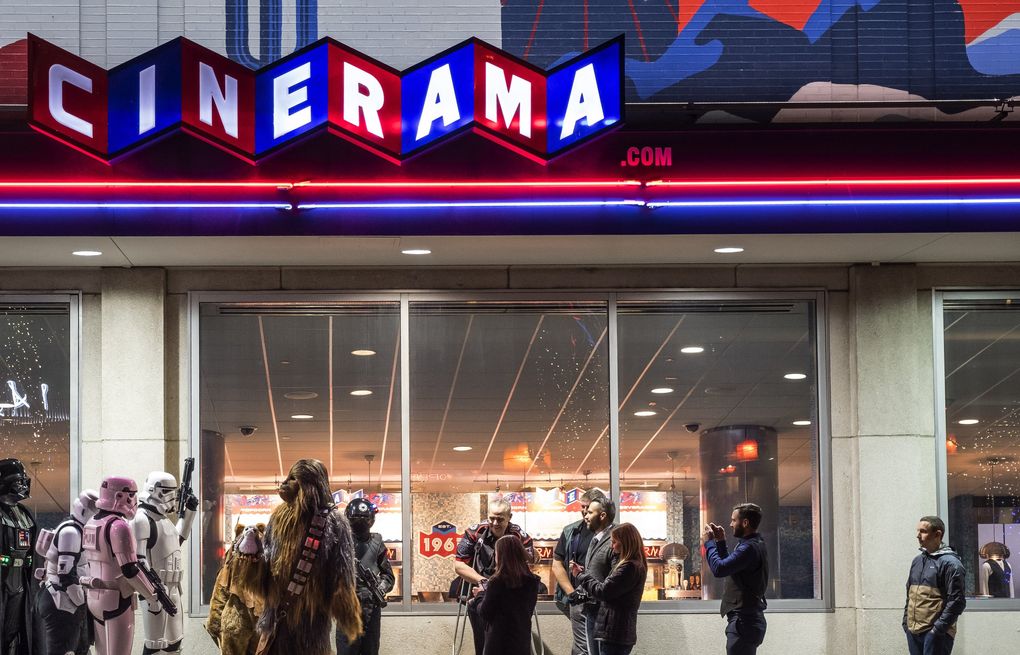
One of the few remaining cinemas worldwide that was originally built to showcase three-projector Cinerama technology, Seattle Cinerama opened at Fourth Avenue and Lenora Street in 1963. After it fell into disrepair during the ’80s and ’90s, Allen bought the theater in 1998, reopening it after major renovations in 1999. With its enormous, immersive screen and trademark chocolate popcorn, Cinerama became a beloved hub for many Seattle moviegoers. Additional renovations at the theater took place in 2010 and 2014.
Founded in 2015, the Seattle Art Fair is a vast annual event, bringing national and international galleries and buyers to town and attracting tens of thousands of people. This year’s Seattle Art Fair was scheduled for July 23-26, but was canceled in late April, with organizers citing the pandemic.
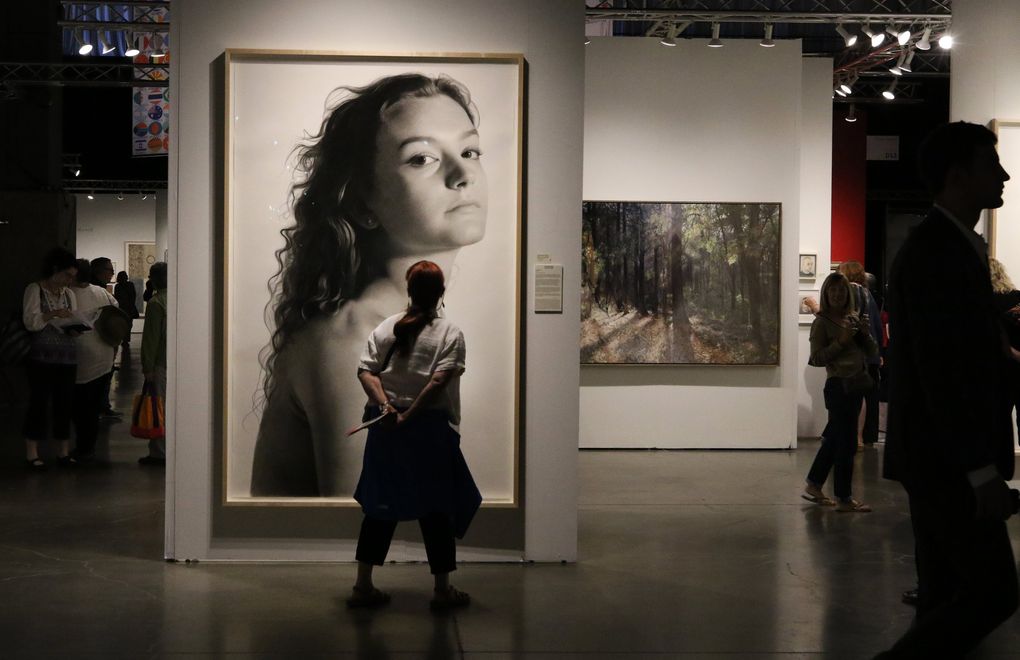
The Living Computers: Museum + Labs, described on Vulcan’s website as “the world’s largest collection of fully restored supercomputers, mainframes, minicomputers and more,” opened in Sodo in 2012 and was expanded in 2016. Its offerings included not only selections from Allen’s vast personal collection, but hands-on exhibits on virtual reality, self-driving cars, robotics, and computer-generated art and music.
The Flying Heritage & Combat Armor Museum, housed at Paine Field since 2008, showcases aircraft, vehicles and military artifacts from the United States, Great Britain, Germany, the Soviet Union and Japan.
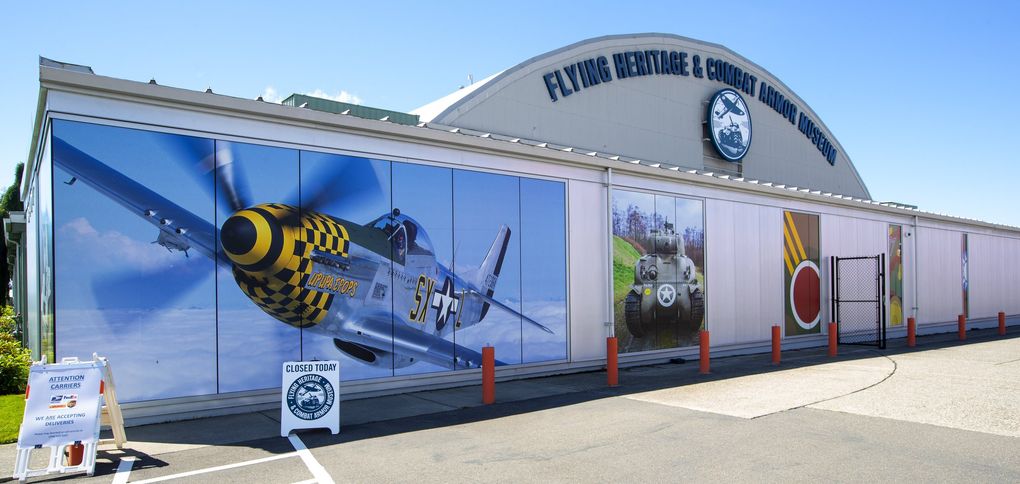
Vulcan Productions, founded in 1997, produces documentary films and television programming, mostly focusing on environmental and social issues. Ruth Johnston, general manager of Vulcan Productions, said in a statement that she was “deeply saddened to announce that Vulcan Productions will be closing its doors at the start of 2021. This difficult decision was made as part of the ongoing transition after Paul G. Allen’s passing in 2018, and in light of the unprecedented crisis brought on by the COVID-19 pandemic.”
Moira Macdonald: mmacdonald@seattletimes.com; on Twitter: @moiraverse. Moira Macdonald is the Seattle Times arts critic.